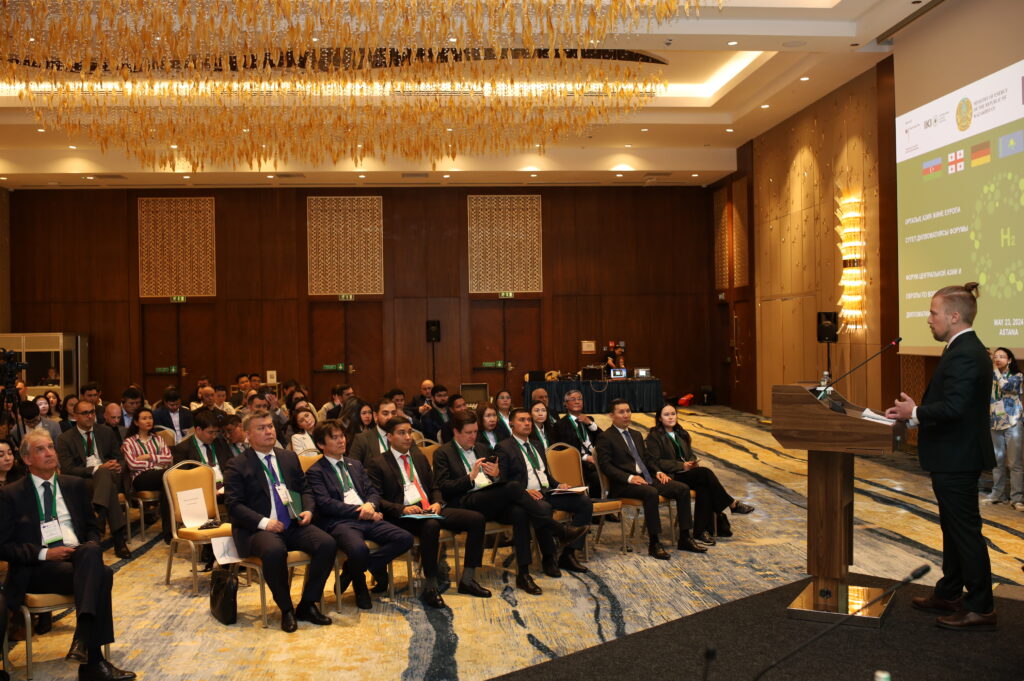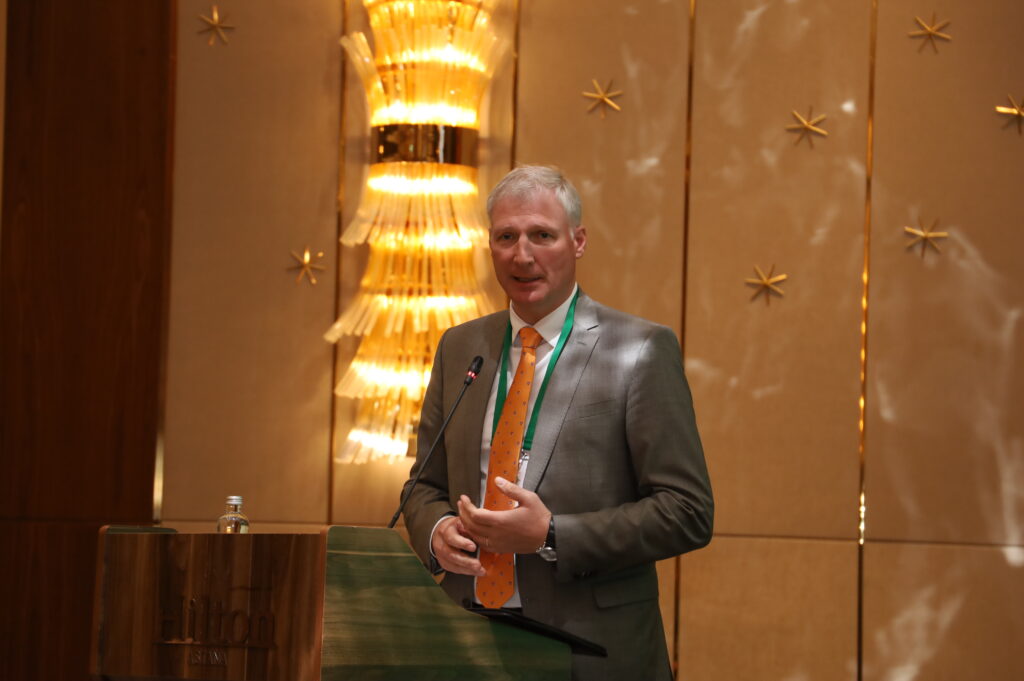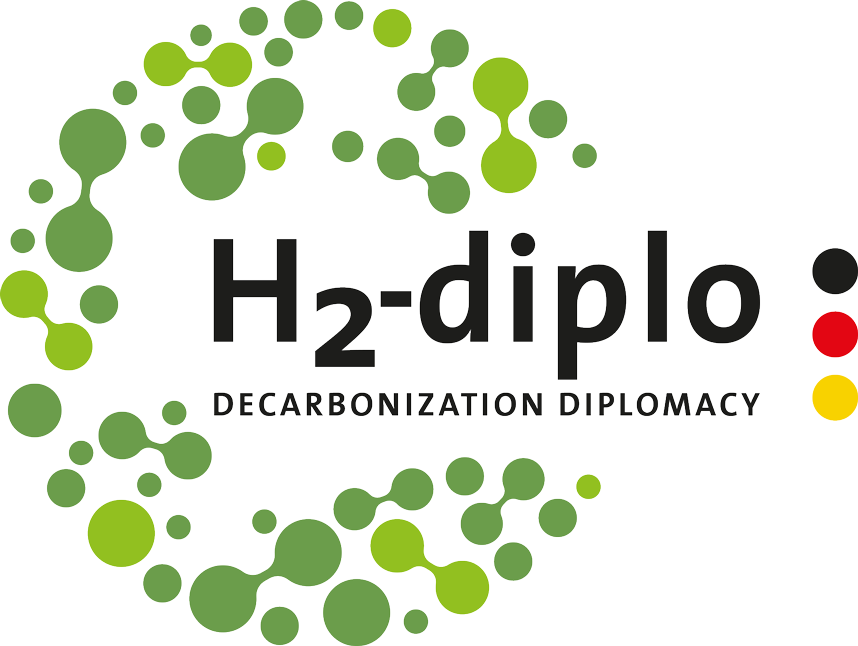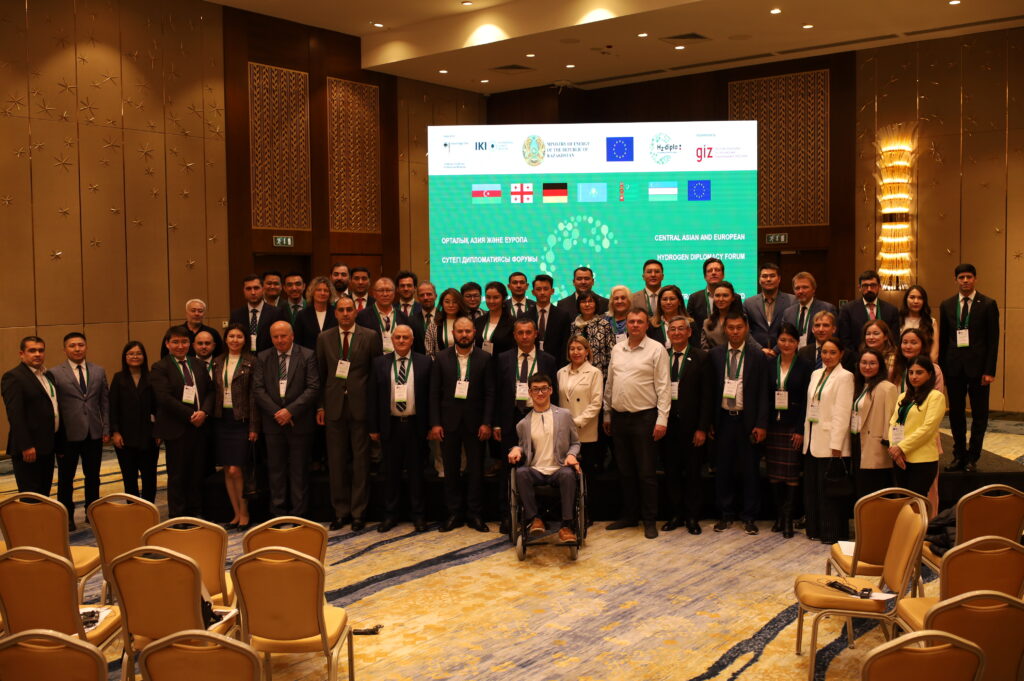The first Regional Central Asian and European Hydrogen Diplomacy Forum in Astana, Kazakhstan, marked a significant step toward international cooperation on green hydrogen. Experts from Central Asia, the Caucasus, and the EU gathered to discuss strategies for advancing green hydrogen production, decarbonization, and policy alignment.
On May 23rd, 2024, the Hydrogen Diplomacy Office Astana (H2-diplo), in partnership with the European Union’s Sustainable Energy Connectivity in Central Asia (SECCA) project, hosted the first Regional Central Asian and European Hydrogen Diplomacy Forum in Astana, Kazakhstan. The event was a milestone in fostering dialogue between Central Asia, the Caucasus, and the EU on green hydrogen development, bringing together over 100 participants, including government officials, industry leaders, and international experts.

Kazakhstan aims to become a major player in hydrogen production and exports by 2040, ensuring sustainable economic growth and emissions reduction. In his opening speech, Alibek Zhamauov, Vice Minister of Energy of Kazakhstan, emphasized the country’s commitment to green hydrogen as a key pillar of its energy transition. Similarly, Gumar Sergazin, Director of the Department of Atomic Energy and Industry, highlighted Kazakhstan’s strategy to cut greenhouse gas emissions and diversify its energy mix. Germany played a leading role in the forum, underlining its commitment to supporting Kazakhstan and its regional partners in advancing green hydrogen technologies. Oliver Rentschler, Director-General for Climate Diplomacy and Geo-economics at the German Federal Foreign Office, stressed the urgent need for global decarbonization efforts to meet Paris Agreement goals. He pointed to green hydrogen as a transformative force in reshaping economies and called for stronger regional cooperation, policy alignment, and the development of common certification standards for hydrogen.
The forum featured three high-level panel sessions covering: hydrogen strategies and their role in energy transition, decarbonization in Central Asia and reducing fossil fuel dependence, and policies and regulatory frameworks supporting hydrogen initiatives. Delegates from Azerbaijan, Georgia, Germany, Turkmenistan, and Uzbekistan contributed to discussions, reinforcing regional collaboration on hydrogen projects.
Moreover, experts from across the region shared updates on their hydrogen strategies. Zhobir Akhadov (National Research Institute for Renewable Energy Sources) detailed Uzbekistan’s advancements in hydrogen development, including new laboratories and increased renewable energy use. Rahim Abdullayev (State Agency for Renewable Energy Sources) discussed plans to utilize wind energy and natural gas for green and blue hydrogen production in Azerbaijan.
Soso Mindiashvili (Ministry of Economy and Sustainable Development) introduced Georgia’s upcoming green hydrogen pilot project. And Abdyrahman Myratdurdyev (Ministry of Energy) presented new hydrogen project developments in Turkmenistan.

This forum marked a crucial step in fostering cross-border cooperation and knowledge exchange, strengthening the foundation for a hydrogen-driven energy transition in Central Asia and the Caucasus.
The success of the first Regional Central Asian and European Hydrogen Diplomacy Forum has paved the way for further engagement and collaboration. The discussions and insights gathered will influence policy development, investment strategies, and future hydrogen initiatives in the region.
For more news about the H2-diplo activities, follow us on LinkedIn: H2-diplo – Decarbonization Diplomacy | LinkedIn

